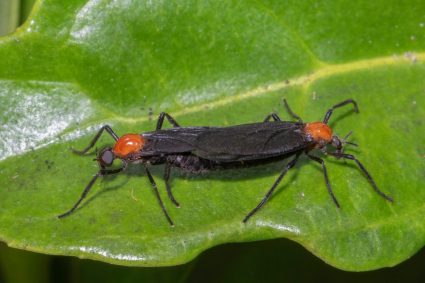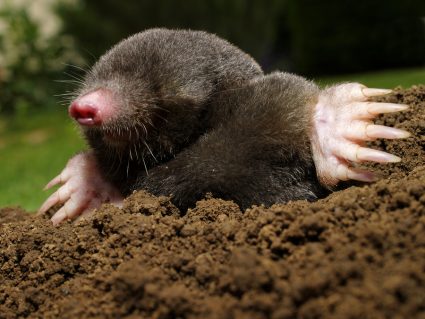
Squirrel droppings can be a common sight for homeowners with a squirrel infestation. They pose a significant health risk due to the diseases and parasites they carry. Therefore, it’s crucial to clean up squirrel droppings safely and effectively. This comprehensive article will guide you through the process, providing multiple solutions and options to ensure you handle the situation appropriately.
To clean up squirrel droppings, first put on protective gear including gloves, a face mask, and protective eyewear. Ventilate the area and avoid sweeping or vacuuming the droppings. Spray the droppings with a bleach solution or an EPA-registered disinfectant and let it soak. Use paper towels to wipe up the droppings and dispose of them in a covered garbage can. Remember to wash your hands thoroughly afterwards. For ongoing infestations, consider hiring a professional wildlife control service.
Understanding the Health Risks Associated with Squirrel Droppings
Before delving into the cleaning process, it’s essential to understand the health risks associated with squirrel droppings. Squirrels can transmit several diseases, including Leptospirosis, Salmonellosis, Tularemia, and Roundworm. They can also bring ticks and fleas into your home, which can easily transfer to humans and pets. Ticks are particularly dangerous as they can cause Lyme disease, leading to stiffness, nerve pain, and inflammation of the spinal cord or brain.
Initial Steps to Take When You Notice Squirrel Droppings
Upon noticing squirrel droppings in your space, take the following initial steps:
- Put on rubber or plastic gloves and a face mask to protect against germs and airborne particles.
- Ventilate the area by opening doors and windows for at least 30 minutes.
- Avoid sweeping or vacuuming the droppings, which can spread contaminants.
- Spray the droppings with a bleach solution or an EPA-registered disinfectant until very wet, and let it soak for 5 minutes or per the disinfectant label instructions.
- Use paper towels to wipe up the droppings and cleaning product.
- Dispose of the paper towels in a covered garbage can that is regularly emptied.
Necessary Protective Gear to Wear When Cleaning Squirrel Droppings
When cleaning squirrel droppings, your safety should be your priority. The necessary protective gear includes:
- A respirator or HEPA mask to protect against inhaling airborne particles and pathogens.
- Durable gloves to prevent direct contact with the droppings and any contaminated surfaces.
- Protective eyewear to shield your eyes from any splashes or particles during the cleaning process.
- Biohazard-rated uniform or disposable jumpsuit for an extra layer of protection against contamination.
The Best Cleaning Agents for Squirrel Droppings
The cleaning agents you choose for squirrel droppings should be capable of killing any pathogens present. The best cleaning agents include:
- A bleach solution.
- An EPA-registered disinfectant.
- Antibacterial and disinfectant cleaning products.
- Enzyme-based cleaners for a more thorough clean.
Disposing of Squirrel Droppings Safely
After cleaning, the disposal of squirrel droppings is equally important. Follow these steps:
- Put on rubber or plastic gloves.
- Spray the droppings with a bleach solution or an EPA-registered disinfectant until they are very wet. Let it soak for at least 5 minutes or per the disinfectant label instructions.
- Use paper towels to wipe up the droppings and cleaning product.
- Place the used paper towels in a sturdy, thick plastic bag.
- Tie the ends of the bag together in a knot to seal it. Place the full bag in a second plastic bag and seal that bag by tying the ends together in a knot.
- Dispose of the bag in a covered garbage can that is regularly emptied.
Remember to wash your hands thoroughly with soap and water after handling the droppings and disposing of them.
Preventing Future Squirrel Infestations
Prevention is always better than cure. To avoid future squirrel infestations, you can:
- Block entry points to your yard and home by sealing any holes or gaps.
- Install motion-activated sprinkler systems in your yard.
- Use heavyweight mulch, stones, or decorative rocks on the surface of your soil.
- Treat seeds, bulbs, and flowers with taste repellents or plant strongly-scented plants.
- Use squirrel-proof bird feeders.
- Keep your yard clean by removing fallen nuts, acorns, and berries.
- Install tall fencing or netting around gardens or bushes.
Signs of an Ongoing Squirrel Infestation
Identifying an ongoing infestation is crucial to prevent further damage to your property and potential health risks. Look out for strange noises around your home, damage to your home, squirrel droppings, nests, foul odors, an increased squirrel population in the area, and misplaced woodchips or insulation.
In conclusion, cleaning up squirrel droppings is a crucial task that homeowners need to handle with care. Following the steps outlined in this article can help you manage this task effectively. However, if you’re uncomfortable or unsure about handling it yourself, don’t hesitate to hire a professional wildlife control service.
Frequently Asked Questions
What is the ratio for the bleach solution used to clean squirrel droppings?
The Centers for Disease Control and Prevention recommend a solution of 1 part bleach to 10 parts water for disinfecting areas contaminated with rodent droppings.
Can I vacuum the droppings once they have been soaked with a disinfectant?
No, vacuuming is not recommended as it can aerosolize the droppings, increasing the risk of inhaling harmful pathogens. It’s best to wipe up the droppings with paper towels after they’ve been soaked in a disinfectant.
How often should I clean my yard to prevent squirrel infestations?
Regular yard maintenance is key to preventing squirrel infestations. It’s recommended to clean your yard at least once a week, removing any fallen nuts, acorns, and berries that can attract squirrels.
What should I do if I find a squirrel nest in my attic?
If you discover a squirrel nest in your attic, it’s best to contact professional wildlife control services. They have the experience and knowledge to remove the nest and squirrels safely and humanely, and they can also help seal entry points to prevent future infestations.
Are there any natural repellents that can deter squirrels?
Yes, there are natural repellents that can deter squirrels. These include peppermint oil, cayenne pepper, and vinegar. However, their effectiveness may vary, and they often need to be reapplied frequently.









